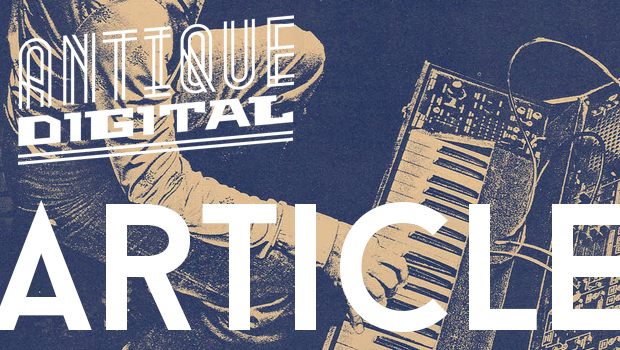Working For the Weekend – 5 Tips for the Part-Time Musician
To the aspiring musician, the realities of pursuing art as a career in our post-industrial society can often feel like a catch-22: gigging and recording, even taking on a few students on the side, rarely produces enough income at the outset to be self-sustaining; however, taking on a day job means taking a significant gouge into the amount of time spent on creative endeavors. In order to afford such luxuries as a regular mailing address and an occasional meal consisting of more than just simple carbs and misery, the burgeoning virtuoso must be willing to give up the rehearsal arms race to those willing to accept a lifestyle bordering on vagrancy.
Or do we?
With a little know-how, some creative thinking, and a dab of organizational skills, it’s very much possible to enjoy a rich musical life experience without having to set out bear traps for the bill collectors. Having done the work-life-art juggle for the past decade, here are five techniques which I feel allow one to balance the demands of the working stiff with the equally strident demands of our muses.
Learn to Read – Seriously…
As a guitarist, there’s a joke I’ve often heard that’s pretty much universal among our breed:
- Q: How do you get a guitarist to turn down?
- A: Put sheet music in front of him.
- Q: How to you get a guitarist to turn off completely?
- A: Make sure the music has notes on it.
But for the casual musician of any persuasion, sight reading sometimes seems like some esoteric ritual reserved for classical conservatories. Those little dots are so tiny, and hey, so-and-so recording artist said they never learned to read music, so if it’s good enough for them, it’s good enough for me. Why waste the time?
In a word, vocabulary. Sure, anyone who spends enough time hearing and speaking a different language can probably eventually learn to stand up and give a pretty good speech, maybe even stumble their way through the odd Facebook post… but there’s an entire world of ideas they’re just going to miss out on unless they learn to read the language. Even if you don’t play like a musical Shakespeare, there’s no harm in learning what exactly makes the greats so great. And if nothing else, having some sheet music to pass out at your average dive bar jam night is a great way to get those noisy guitarists to turn down…
Visualization – Zen and the Art of Practicing
For the average working class hero, actual practice time is often at a premium. Between that big ugly forty-hour-a-week commitment, family, errands, and the need to actually sleep every once in awhile, we often find ourselves limited to far less time at home with our instrument than we’d like. But hey, them’s breaks; I mean, it’s not like most employers would look very kindly on their employees bringing a tuba in and oompa-ing around the office during lunch. Obviously, there’s no way to practice your instrument without… your instrument.
Right?
As most professional musicians will tell you, a surprising amount of musicianship is actually a mental game. As a mental game, there are ways to sort of “cheat the system” and build skills even in situations which otherwise wouldn’t allow us to turn on and crank up. Creative visualization, or the act of using the imagination to “run through” specific behaviors or events, has for many many years been a tried and true technique that athletes, musicians, actors, and anyone else who relies on muscle memory have used to up their game without so much as leaving their chair. With a little practice, you’ll find you will be able to mentally play through entire pieces, and when combined with solid notation reading, work on pieces you haven’t even begun playing yet in a real world setting.
So next time you get a few minutes to yourself at the office, rather than talking up that cute receptionist or leaning on the water cooler listening to some fellow suit drone on about the latest reality TV trash, grab your favorite sheet music or tablature and start “practicing”. Pro-tip: wrap it up in a Wall Street Journal and impress your boss with how eager your are to improve your business savvy!
Not Just Noise – How to Really Listen
It’s part of the musician’s collective consciousness that most of us live our lives with a soundtrack. From the car stereo to and from work, to headphones at lunch, to just playing background noise during our daily chore routine, the avid music-type just can’t seem to go very long at all without tunes to jam to.
However, many of us don’t utilize this habit to its full advantage. Sure, we’re constantly “listening” to music, but so often we’re not really listening in a mindful, studious way. And while this type of exercise can be infinitely improved by setting aside some serious time and investing in honest-to-goodness ear training, even the casual audio nerd can learn to isolate individual parts with a little practice. Especially if there’s a recording of a specific piece you’re working on, there’s a lot to be said for taking a few minutes and really analyzing how a pro tackles the finer subtleties of the chart in question.
This isn’t to say that we should always give the music we play our total, undivided attention: if anyone reading this wraps their car around a tree trying to do harmonic analyses of Miley Cyrus tunes on the way to the grocery store, that’s entirely on them. But that doesn’t mean we can’t make it a point to, at least once a day, pick one song out of the many we have running in the background and take a moment to concentrate and really appreciate it.
Community Service – Getting Involved in Your Local Scene
A famous musician once said “An hour of performance is worth a hundred hours of practice.” It’s one thing to be a guitar hero in your own bedroom, but nothing beats the rush of playing in front of an audience. However, putting a musical group together and playing out presents its own challenges, and may not always be the best route if you’re not willing to put a serious investment of both time and effort into making it work.
However, there are other outlets available that don’t require such a heavy commitment. Most decent sized towns are bound to have a bar, club, shop or church that hosts some kind of regular “jam night”. If you’re up for it, I generally recommend leaving your axe at home the first time you visit one of these events. Sit and watch for a bit – are people signing up for time slots, or is there more of a loose atmosphere? Does the house band seem to welcome newcomers, or have they established their own little “inner circle”? If you leave at the end of the night wishing you’d brought an instrument, it’s a good bet it’ll be worth coming out again soon.
For some people however, the stage just isn’t the route they want to go down. Whether due to some lingering stage fright (which, by the way, any musician who tells you they don’t get stage fright now and then is either lying or stupid – it’s an integral part of the rush of performing) or having an act that doesn’t “translate” properly to a typical coffee house gig, some folks just aren’t going to get anything out of live work. If this is you, keep in mind performing can just as easily be on your own terms. In this day and age, there are a host of opportunities online to get your art out and be part of the greater musician’s community – Youtube, Soundcloud, Bandcamp, and a host of other popular user-generated content sites have been jumping-off points for many a formerly unknown artist, and all without leaving the comfort of your own home.
Making a Game Out of It – Have Fun!
Of course, all this becomes a moot point if you’re not getting anything out of it. Music is supposed to be a release from the stresses of our workaday world; if it starts to feel like you’ve taken on a second (or third, or fourth) job, it’s time to re-evaluate what you’re doing. Falling asleep running through scales every day? Maybe trade off a couple repetitions for something more free-form, like writing or working on a favorite song. Try finding a new sound, or a new way to play your instrument… or even a new instrument, just to mess around with; after all, what the heck are we working that day job for in the first place if not to have a little extra change to treat ourselves now and then?
Speaking of new instruments, sometimes taking the time to learn something unfamiliar can be a great way to break out of a rut. Just recently I felt myself in a bit of a funk with my guitar playing; I was just playing the same old thing over and over. On a whim, I started banging around with some intro to keyboarding books on a cheap MIDI controller I picked up. Next thing I know, not only am I getting to re-experience the thrill of a new instrument, I’m finding myself rethinking how I look at my primary instrument. Sure, starting a new skill may take precious minutes away from some vacuous “10,000 hour” theory, but if it’s preventing you from feeling too discouraged to do anything musical, I say good on ya’.
At the end of the day, it’s all about enjoyment. If we’re taking time to have fun making the art we like, any compromises we have to make to do so will feel well worthwhile. And while the vast majority of us “weekend warriors” certainly wouldn’t turn our nose up at a chance to become full time working musicians, as long as we’re getting to do what we love on top of whatever we do to pay the bills we can typically manage to be pretty pleased with the state of our lives.

